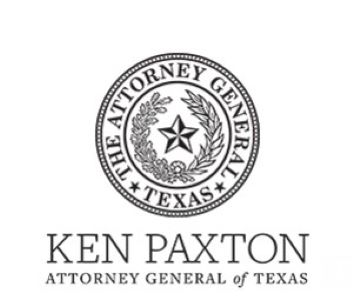
A bipartisan group of attorneys general announced agreements in principle have been reached to address the opioid crisis, one with former opioid maker Allergan and another with opioid maker Teva. Once finalized, the combined Allergan and Teva settlements would provide as much as $6.6 billion nationwide. Both settlements remain contingent on resolution of key issues regarding the settlement structure. The parties are also negotiating terms requiring reformed business practices and increased transparency, the news release from Texas Attorney General Ken Paxon stated.
One agreement calls for Allergan to pay up to to $2.37 billion and for Teva to provide up to $4.25 billion to participating states and local governments. Hopkins County was among many who in years past collaborated to file lawsuits against opioid-producing companies. Hopkins County has, in the past, been designated to benefit from opioid settlements awarded to Texas. Funds awarded to state and local governments are to be used to address the opioid crisis, including prevention and treatment resources.
Teva
According to the 4 p.m. news release, critical details of the settlement are ongoing, Teva disclosed the key financial terms in its earnings announcement. Texas previously entered into a deal with Teva that included a provision that allows the state to benefit if those terms are more favorable.
“This settlement is a major win, and a step closer to helping people overcome opioid addiction,” Attorney General Paxton said. “Pharmaceutical companies like Teva must be held accountable for their role in this devastating epidemic. We expect this settlement to make a crucial difference in preventing fatal overdoses and treating opioid addiction disorder.”
Teva, an Israel-based drug manufacturer, makes Actiq and Fentora, which are branded as fentanyl products for cancer pain, and several generic opioids like oxycodone.
The states alleged that Teva promoted potent, rapid-onset fentanyl products for use by non-cancer patients, deceptively marketed opioids by overstating their benefits and downplaying the risk of addiction and failed to comply with suspicious order monitoring requirements.
The parties have agreed to the following financial terms, the release states:
- Teva will pay a maximum of $4.25 billion in cash over 13 years. This figure includes amounts Teva has already agreed to pay under settlements with individual States, funds for participating States and subdivisions, and the $240 million of cash in lieu of product described below;
- As part of the financial terms, Teva will provide up to $1.2 billion in generic naloxone over a 10-year period or $240 million of cash in lieu of product, as each State may elect. Naloxone is used to counteract overdoses; and
- The settlement will build on the existing framework that states and subdivisions have created through other recent opioid settlements.
A final settlement remains contingent on reaching agreement to change certain business practices and to meet transparency requirements going forward.
Allergan
Ireland-based Allergan formerly made Norco, Kadian-branded, and generic opioids. The company sold its generics portfolio to Teva in 2016. Earlier this week, Teva and the coalition of attorneys general announced an agreement in principle to a settlement valued at $4.25 billion.
The coalition of states alleged that Allergan:
- Deceptively marketed opioids by overstating their benefits and downplaying the risk of addiction, and by encouraging doctors to prescribe more opioids to treat patients showing signs of addiction; and
- Failed to maintain effective controls to prevent diversion of opioids.
“I am proud to announce a major win for Texas with our settlement with Allergan,” Paxton said. “I will continue to hold opioid manufacturers responsible for deceiving patients and the medical community, while ensuring that victims of this tragic epidemic receive the assistance they need.”
The $2.37 billion figure includes money that Allergan has already agreed to pay under settlements with individual States.
The negotiations are being led by Texas, California, Iowa, Illinois, Maryland, Massachusetts, New York, North Carolina, Pennsylvania, Tennessee, Vermont, Virginia, and Wisconsin. While New York was among the 13 States integral to negotiating this settlement, New York settled separately with Allergan in December 2021.






